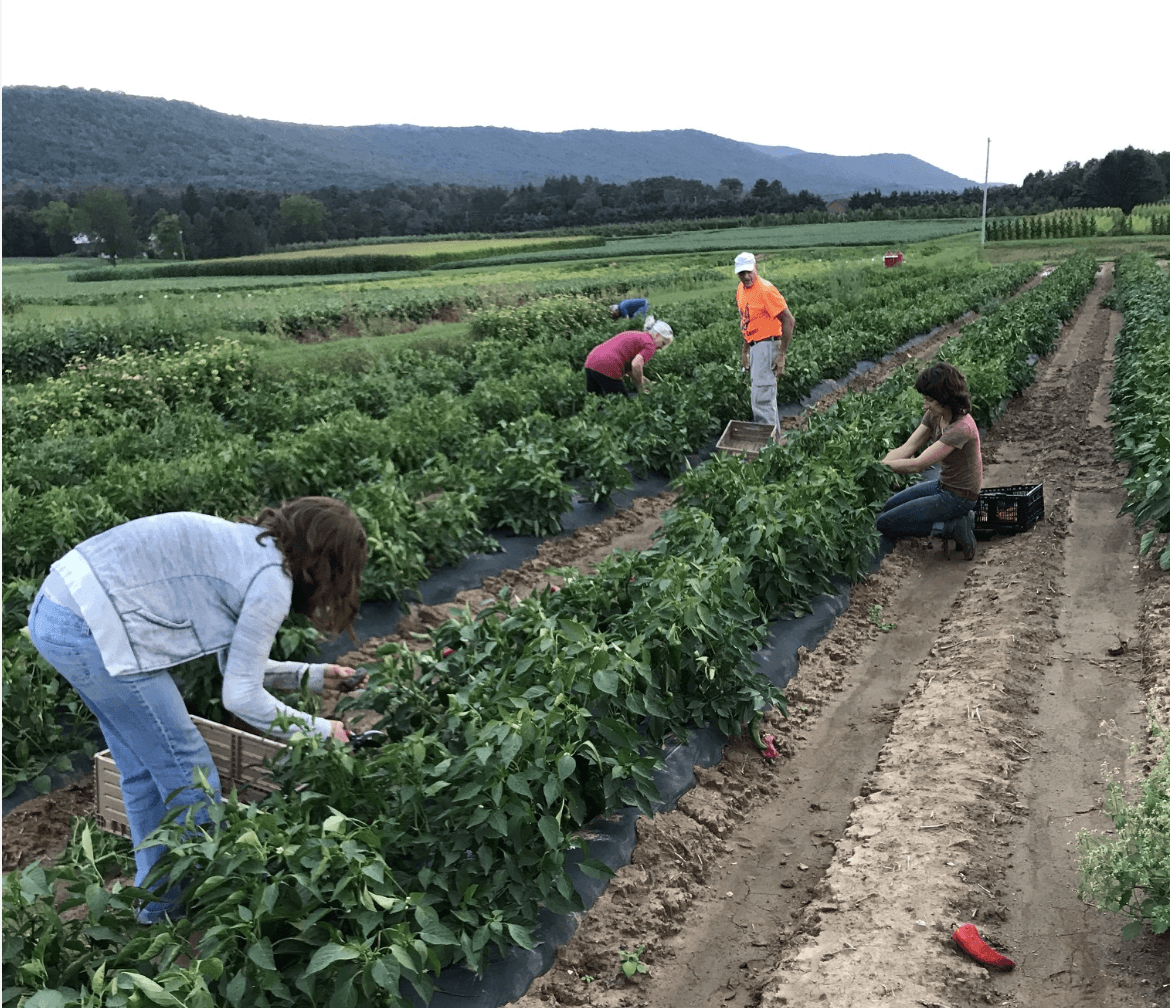This past week I had recently taken a field trip to the student farm here on campus. This field trip was required by my sustaining agriculture and policy class but after I was done complaining about a 9 am trip to a hot farm, I realized how big of a role local farming has not only in the kitchen but also in the environment.
Farming has been part of our society for centuries. Imagining how long ago this practice started and the fact that it is still used today is quite honestly astonishing. Obviously the practice has developed and gone through much growth in its many years, but this is not always an all-around benefit.
The growth from the Industrial revolution for farming was necessary. It was evident that it would be nearly impossible to continue the labor intensive old practices while still being able to produce and export enough food for the growing population. These practices are advanced no doubt but with all the heavy chemical and machinery use, and genetically modified seeds, many large scale farms’ impact on the environment is being questioned.
In addition to this, large scale farming can put a strain on fossil fuels and water. While these farms practice mass production, the amount of greenhouse gases emitted into the air is greater because of this. Many of these large scale farms also take up large amounts of land to feed the livestock which is a contributor in deforestation.
Due to the fact that many of these industrial and factory farms need massive plots of land, they must be located far from most stores and consumers. This increase transport and travel time results in a high increase of our food miles.
Food miles are a unit of measurement for the transporting of food to the market. Therefore, the longer distance produce has to travel, the higher food miles it accounts more. Transporting food can account for 11% of the emission from large scale farming.
Local farming has begun to receive more popularity and support over the last few years. There are numerous benefits to local framing and local buying. Local farming and purchasing food from them will significantly reduce the food miles of the farmer and consumers. In doing this, the carbon footprint from air and road travel will decrease dramatically, many researchers say the breakfast you consumed this morning may have traveled almost the whole globe.
While farming places a critical rule for our society and health, it is important to acknowledged the impact it has on the environment. Every now and then make sure to visit your local farmers market and but you produce from them, not only will this make a big difference, you can also support local business.



